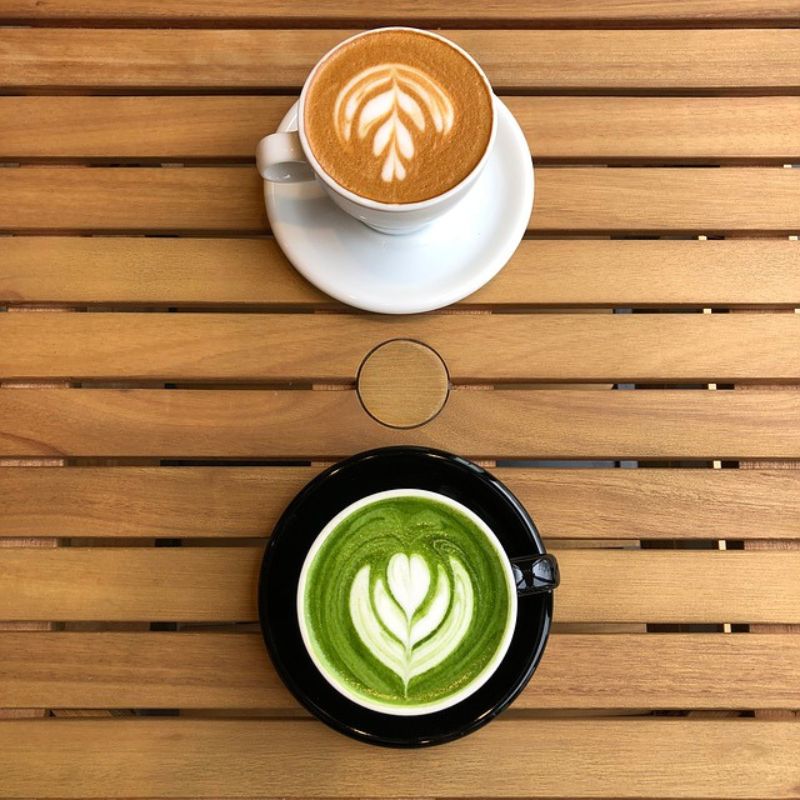
Does matcha contain caffeine?
Share
Matcha , a ground green tea powder traditionally used in the Japanese tea ceremony, does contain caffeine . However, its effect is often perceived differently than that of coffee, particularly due to its unique composition . Here are some key points to understand the presence of caffeine in matcha and its effects on the body.
Caffeine content
On average, a serving of matcha (about 1 to 2 grams, or a teaspoon) contains between 30 and 70 mg of caffeine, which is generally less than in a cup of coffee (95 mg of caffeine on average). This amount can vary depending on the quality of the matcha, its origin and the cultivation method. Aroma Matcha Premium Matcha contains between 50 and 70 mg of caffeine depending on its preparation, it can be used to make energy drinks and is an excellent alternative to coffee .

Absorption and effects
Unlike coffee, where caffeine is absorbed quickly and can cause an energy spike followed by a crash (often associated with jitters), matcha's caffeine is released more slowly into the body. This difference is due to the presence of L-theanine, an amino acid present in matcha that slows down the absorption of caffeine. The result: more stable and long-lasting energy, without the feeling of "slump" or jitters.
Caffeine and health
The combination of caffeine and L-theanine in matcha also promotes focus and alertness while reducing stress. This unique pairing makes matcha a popular beverage for its cognitive effects. Plus, matcha is packed with antioxidants , including catechins, which offer additional benefits, including heart health and metabolism.

Who should monitor their consumption ?
While the caffeine in matcha is better tolerated by many people, it is important for those who are sensitive to caffeine ( pregnant women, people with anxiety or insomnia ) to adjust their intake. Matcha can still be a gentler alternative to coffee , but it is still essential to listen to your body and consume this beverage in moderation.
Yes , matcha does contain caffeine, but its effects are mellowed and prolonged by L-theanine. This provides long-lasting energy and improved focus without the unwanted side effects often associated with coffee consumption. If you’re looking for a milder, more balanced alternative to coffee , while still staying alert and energized, matcha could be the perfect solution .
Enjoy its stimulating effects while savoring a drink rich in antioxidants. Discover our offers here!
